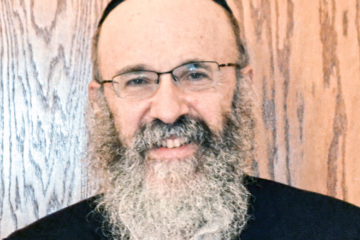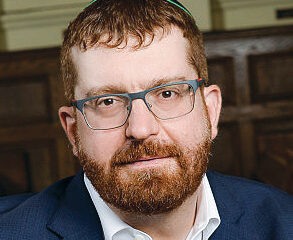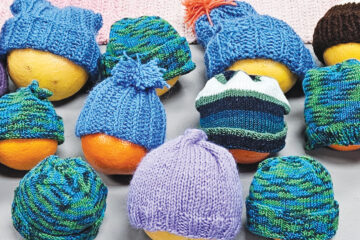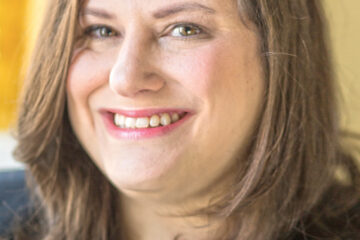Chabad rebbetzin volunteers in Israel
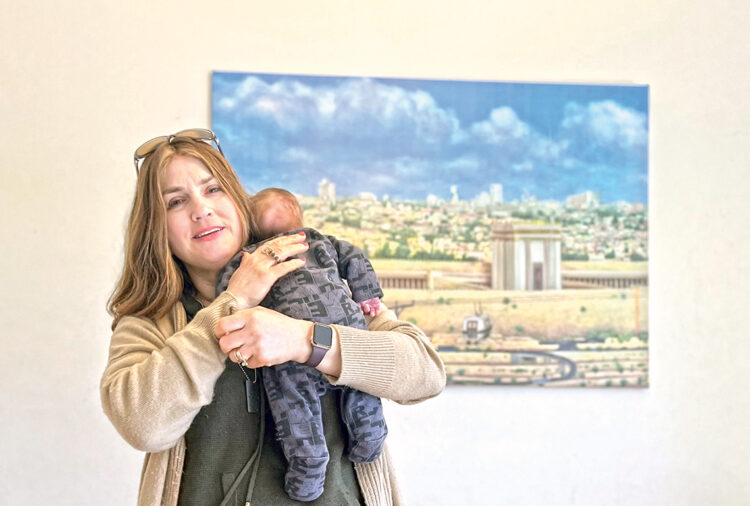
‘Your pain is my pain, your happiness is my happiness.’
By Devorah Mangel, Chabad of Greater Dayton
The shocking news of Oct. 7 reverberated not only within me, but also across the global Jewish community. In response, I immediately turned to the teachings of the Rebbe when he offered solace and guidance in the aftermath of the Yom Kippur war. My focus shifted toward increasing spiritual pursuits, acts of goodness and kindness, and tzedakah.
At our Chabad, I introduced Torah learning sessions for women and organized Hafrashat (separating) Challah evenings. These efforts aimed to pray for the release of hostages and the safety of our soldiers, mirroring the practices in Israel among families facing similar challenges.
Despite these actions, a lingering feeling of dissatisfaction fueled a desire to do more than merely talk the talk; I wanted to walk the walk. The ethical lesson from our fathers resonated deeply: “Speak a little and do a lot.”
This prompted me to reach out to Chabad colleagues in Israel, inquiring about areas where help was most needed. I felt a personal calling, compelling me to share warmth and love with those less fortunate, particularly displaced children and mothers navigating trauma.
In the Hebrew month of Adar, the heroic tale of Queen Esther serves as a timeless reminder of individual responsibility in times of crisis. Mordechai’s guidance to Esther, “Possibly for this reason you were destined to be chosen as queen,” holds a deeper lesson for each of us. Reading Esther’s story on Purim transcends its being a mere recounting of historical events; it becomes an opportunity to reflect on the miracle and internalize the lesson she passed on.
Recognizing the diversity of talents among us – singing, musical, artistic, and emotional – I embraced the notion of sharing these gifts with others. Just as Queen Esther risked her life to save her people, we too should leverage our resources, both physical and spiritual, to help those in need.
Assisted by friends Renana and Asaf Harel, my hosts in Mevaseret Zion, I connected with the Sword of Iron Facebook group and various WhatsApp chats. This sense of belonging to a larger family — all driven by the common purpose of sharing talents and time with those in need — was heartwarming.
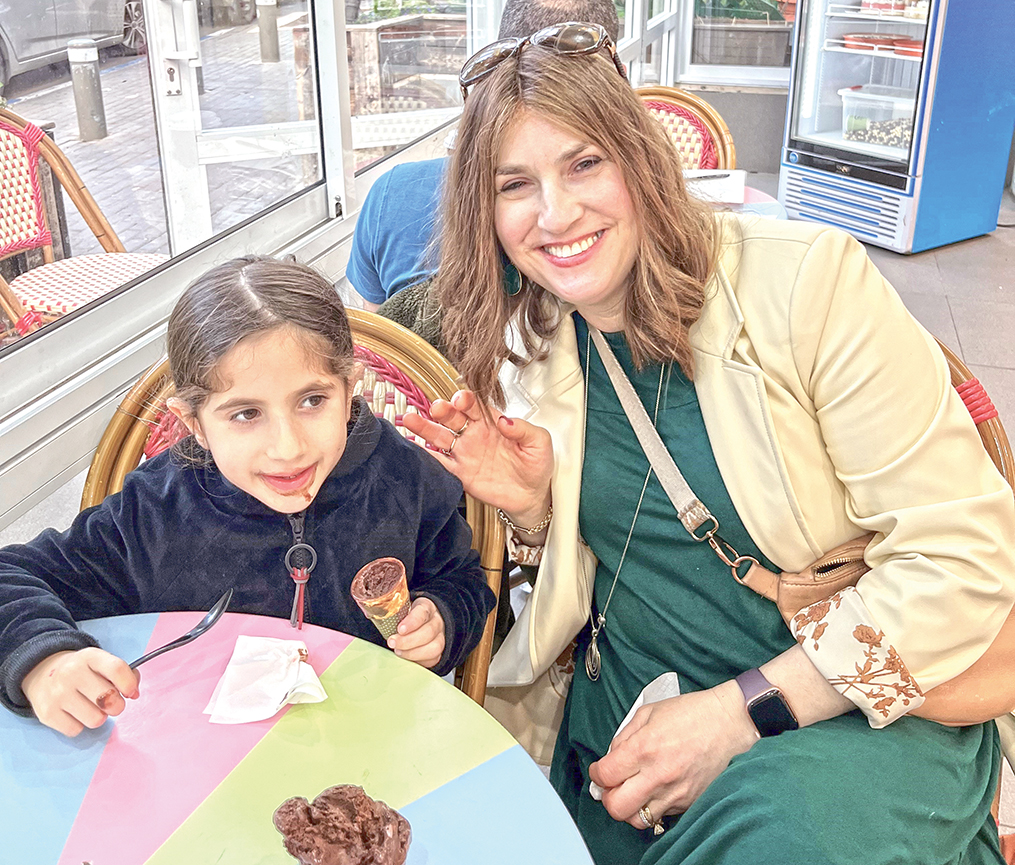
Volunteering at Chabad of Talbiya, I inquired about the needs of evacuees and was tasked with bringing outerwear. Thanks to the support of the Chabad Women’s Circle, we packed nearly two suitcases with outerwear of all kinds. Volunteering at Chabad’s boutique in Talbiya, which provides clothing, shoes, toiletries, and household items to evacuees, offered me a chance to connect with those who endure unknown challenges.
From heartfelt conversations with those in need, I learned the therapeutic impact of a smile and a hug. One woman, whose husband had recently undergone back surgery and was grappling with PTSD, remarked, “I really needed this hug.”
Volunteering at hotels and spending time with evacuees’ children reinforced the joy and support they felt knowing volunteers, even from abroad, were dedicating time to create positive experiences for them.
Guided by the wisdom of my father-in-law, Rabbi Nissen Mangel, a Holocaust survivor, I focused on the miracles and Hashem’s kindness amid atrocities. The strength of Am Yisrael, the People of Israel, even in challenging times, became evident. Despite grieving the loss of loved ones, Israelis, like a mother who lost her son in battle in Gaza, expressed pride and unwavering support for their country.
Evacuees, despite facing challenges, openly shared their gratitude for being alive and having homes. Some even extended their positivity to help those less fortunate. I encountered evacuees who volunteered in any capacity they could, exemplifying the strength of the Israeli spirit.
Participating in events such as a barbecue for soldiers and preparing lentil soup for them allowed me to witness the collective effort to boost morale and provide comfort.
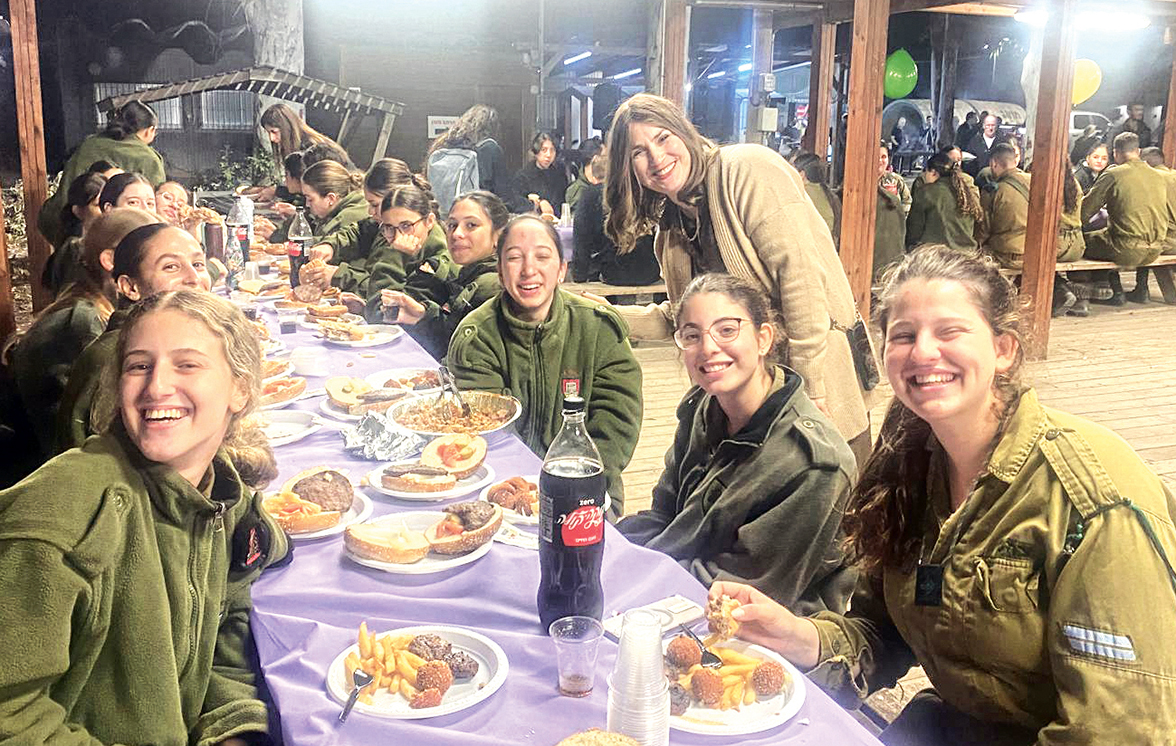
The sentiment expressed by soldiers, appreciating the care and support from volunteers, was a testament to the impact of solidarity.
Throughout my two-week visit, the resounding message of unity and shared responsibility underscored that we are one extended family — brothers and sisters standing stronger when united. This unity transcends political differences, reinforcing the notion that your pain is my pain, and your happiness is my happiness.
Reflecting on the Purim story, where unity was pivotal for salvation, and the recent Torah portions emphasizing shared talents in constructing the Tabernacle, the importance of coming together in unison became apparent. Collective action creates a beautiful dwelling place for God to bless us all.
Post-Oct. 7, an increased awareness of God and spirituality has emerged. Understanding the source of strength and blessings heightened an appreciation for the beauty of Am Yisrael, allowing us to empathize with the suffering, pain, and joy of fellow Jews, even those distant from us.
Our sages’ teachings on the three characteristics of a Jew — being merciful, self-effacing, and doing acts of goodness and kindness — resonate as part of our DNA. The Baal Shem Tov’s teaching that a soul descends to earth to do a favor for another highlights our inherent compassion and the interconnectedness of the Jewish community.
Observing the intense love among Jews, even those unknown to each other, underscored the strength of Am Yisrael. Our collective strength and victory lie in being one nation with one heart.
In the merit of all the kindness, may we be worthy of the coming of Moshiach (messiah) and the swift rebuilding of our Holy Temple – our third one – in Jerusalem.
Devorah Mangel is women’s program director of Chabad of Greater Dayton.
To read the complete April 2024 Dayton Jewish Observer, click here.


